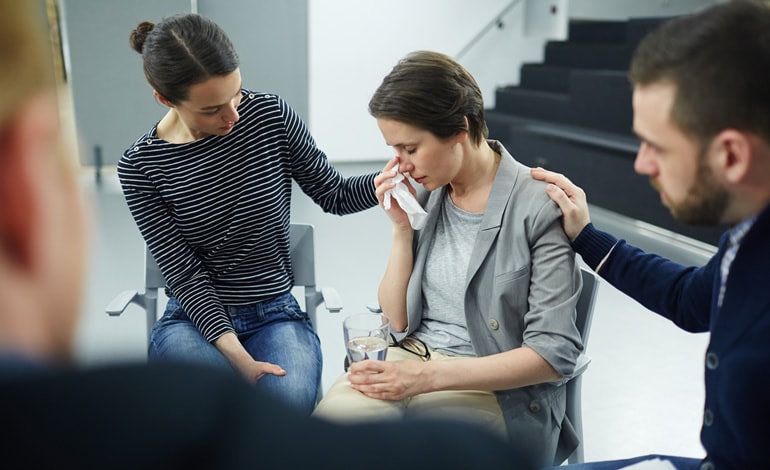All too often individuals will say that they are depressed when they are feeling fed up or when things in their lives are not going as planned. And equally often, after a few days, these feelings disappear. However when an individual’s sullen mood begins to last for a few weeks and interferes with their daily life; they may be battling with depression, a common mood disorders that affects more than 15 million adults in the United States each year. One of the key factors about recognizing depression is that this mood disorder is not a one-size-fits-all disorder. There are many different symptoms, and one individual’s experience may be completely different from the next. Depression can masquerade as something else such as a loss of interest at work or in marriage and therefore this mental health illness is not always obvious. It is valuable for friends or loved ones to learn the telltale signs of depression so that they can offer help, as early in the process as possible because depression is a painful condition, both for the individual suffering from it and his or her loved ones. So how can you tell if your loved one is battling with depression? Below are some of the signs and symptoms to look out for:
Physical signs associated with depression
Lack of energy or feeling tired all the time
Restlessness and agitation
Having difficulty sleeping (or sleeping more than usual)
Poor appetite, which may lead to weight loss
Smoking and/or drinking more than usual
Lack of interest in sex
Unexplained physical aches and pains
Self-harming behavior such as cutting
Emotional warning signs associated with depression
Feeling sad and in low spirits all the time; crying all the time
Having no interest in anything, not getting any pleasure out of life
Feeling anxious all of the time
Having difficulty concentrating or remembering things
Low self-confidence and self-esteem, withdrawing from family and friends
Being more irritable and impatient than usual
Feeling helpless and hopeless
Feeling guilty, as if everything that goes wrong is their fault
How can you help your loved one with depression?
It is common for individuals with depression to lack awareness of their disorder. Lack of awareness about symptoms of depression can cause individuals to assume that their feelings are normal or to dismiss them altogether assuming they are daily stressors. The stigma associated with seeking treatment for depression can also hinder individuals to avoid recognizing their disorder and seeking treatment. As a loved one, it is important to encourage professional treatment as early as possible. Depression seldom gets better without treatment, and it can actually worsen over time. Research shows that the combination of antidepressant medication and cognitive behavioral therapy are effective in alleviating symptoms.
Encourage professional treatment: Share with your loved one what you have noticed about their behavior and suggest they visit a general practitioner to rule out any other medical conditions that can mimic depression. Offer to accompany them to the doctor and/or help them prepare a list of questions to ask the doctor.
Practice compassionate listening: More often than not, sitting in silence and use nonverbal cues to communicate support is more helpful than trying to find the perfect words. When having a conversation, use phrases such as “I am here for you”, “you are not alone in this”, and “I may not understand what you are going through but I want to help you”.
Be helpful: Depression can make everyday mundane tasks, such a grocery shopping, cooking and getting gas, feel impossible. Ask your loved one how you can help in small ways.
Crisis intervention: The risk of suicide exists at all times during major depressive episodes. The most consistent risk factor is a past history of suicide attempts, but most completed suicides are not preceded by unsuccessful attempts. If you believe your loved one is at risk of suicide, do not leave that person alone. Dial 9-1-1 and stay with your loved one.
Practice self-care: Caring for a loved one with depression can be complicated and overwhelming. Be sure to attend to your own personal needs, create appropriate boundaries, and seek help from a therapist or support group.
24/7 ADMISSION HELPLINE 888-629-6707




